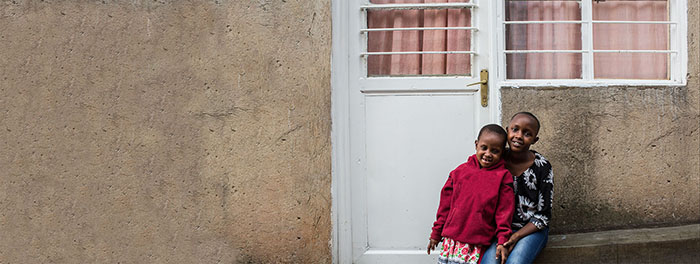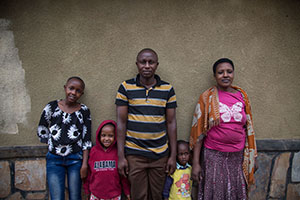
A key facet of BD’s philanthropic giving strategy is the donation of BD products to trusted non-profit partners that serve vulnerable patients and communities, worldwide. As just a single example of this work, since 2011, BD has donated nearly $2.4 million-worth of syringes that have served 10,000 children who are living with type 1 diabetes in 20 under-resourced countries, through the Life for a Child program.
In celebration of November as National Diabetes Awareness Month, Dr. Graham Ogle, General Manager of the Life for a Child program, recently shared with BD the following story of two Rwandan sisters – Therese and Mireille – to highlight the life-changing impact that medical product donations can have of the individual children who receive them.

When Therese was diagnosed with type 1 diabetes as a young child, her father had to sell the family’s belongings to provide her with insulin and supplies needed to save her life.
The local hospital didn’t have any insulin, so he had to purchase it at the pharmacy, which was an unmanageable ongoing expense. He works at a local factory, painting wheelbarrows, and knew he wouldn’t be able to sustain the huge costs of Therese’s insulin and supplies.
Two years later, Therese’s older sister, Mireille, began showing similar symptoms. The family was at church when Mireille began to feel unwell. She was weak, had blurred vision, and was exceedingly thirsty – all signs of dangerously low blood sugar levels.
At the hospital, Mireille’s father found it difficult to face the reality that both of his daughters had diabetes. He said he looked at the doctors with tears in his eyes, as he received the news. The doctor referred the family to the Life for a Child partner centre in Kigail City, where Therese and Mireille now receive insulin, syringes, meters and test strips, HbA1c testing and education regarding diabetes management.
“Thanks to BD’s support, Life for a Child is able to partner with the Rwanda Diabetes Association and the Rwanda Ministry of Health to provide this family – and thousands of others – with the tools they need to manage their children’s diabetes,” said Dr. Graham Ogle, General Manager of Life for a Child.
Type 1 diabetes is a lifelong condition requiring daily insulin injections, blood glucose monitoring, education and specialist health care. Access to this life-saving treatment is often difficult, and sometimes impossible, to achieve in less-resourced countries. Without support, many young people die soon after being diagnosed. Those who survive develop serious complications, such as eye damage and kidney failure. To learn more about how type 1 diabetes affects families like Mireille and Therese’s, visit the Life for a Child web site.
Subscribe to receive BD blog alerts